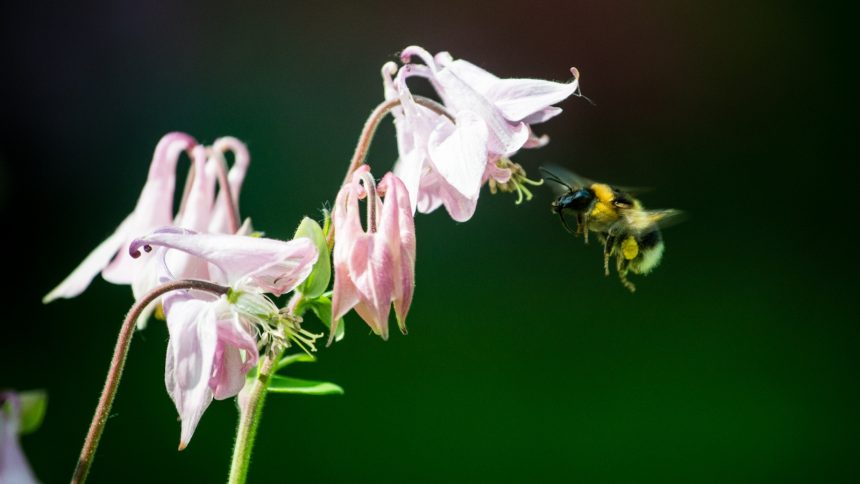For the past four years, plant biologist Elsa Godtfredsen has been conducting fieldwork in a subalpine meadow in Colorado to observe the intricate interactions between wildflowers and bumblebees. The picturesque scene of pollinators buzzing amidst fields of purple delphinium and columbine has become an iconic image of spring in the Rocky Mountains. Working at the Rocky Mountain Biological Laboratory in Gothic, Colorado, Godtfredsen and their team track the life cycle of four species of wildflowers from bloom to seed production. This data is used to create models predicting how climate change will impact these plants and their pollinators.
“Subalpine and alpine ecosystems are undergoing rapid changes,” Godtfredsen explained. “We are investigating whether these species can adapt to constantly evolving ecosystems unless there are significant shifts in policy.” With warmer winters causing early snowmelt in alpine and subalpine regions, there is a timing mismatch where flowers bloom before bumblebees emerge from hibernation. Without adequate pollination, plants struggle to produce seeds and reproduce, leading to a decline in flower populations and subsequently, pollinator numbers in future seasons.
The trends observed in these mountainous ecosystems are a precursor to what other areas may experience as spring arrives earlier globally. Studies have shown flowers blooming ahead of schedule in various regions, affecting the behavior and survival of animals and insects. Warming temperatures and earlier snowmelt disrupt the timing cues that insects rely on for activities like migration and breeding, resulting in mismatches that threaten their populations.
The ramifications of timing mismatches extend to insect pollinators like bees, butterflies, and moths, which play a vital role in our food system by pollinating a significant portion of crops. Climate change-induced disruptions are causing a large percentage of plants and insects to fall out of sync, impacting crop yields and ecosystem balance. These shifts could have dire consequences for food production globally, particularly in regions already facing food insecurity.
As Godtfredsen and their team continue to monitor and analyze the impact of climate change on pollination dynamics, they are observing varied responses in different plant species. While some plants are benefiting from the changes, others are experiencing declines in seed production and overall health. The complexity of these relationships highlights the vulnerability of plant species that rely on specialist pollinators, whose survival is intricately linked to specific plants.
The lack of long-term data on insect pollinators presents a significant challenge in understanding and addressing the impacts of climate change on these essential species. Conservation efforts aimed at preserving pollinator habitats and populations are crucial in mitigating the effects of timing mismatches and ensuring ecosystem resilience in the face of environmental change. Through collaborative research and conservation initiatives, scientists and land managers are working to protect these vital species and maintain the delicate balance of our ecosystems.





